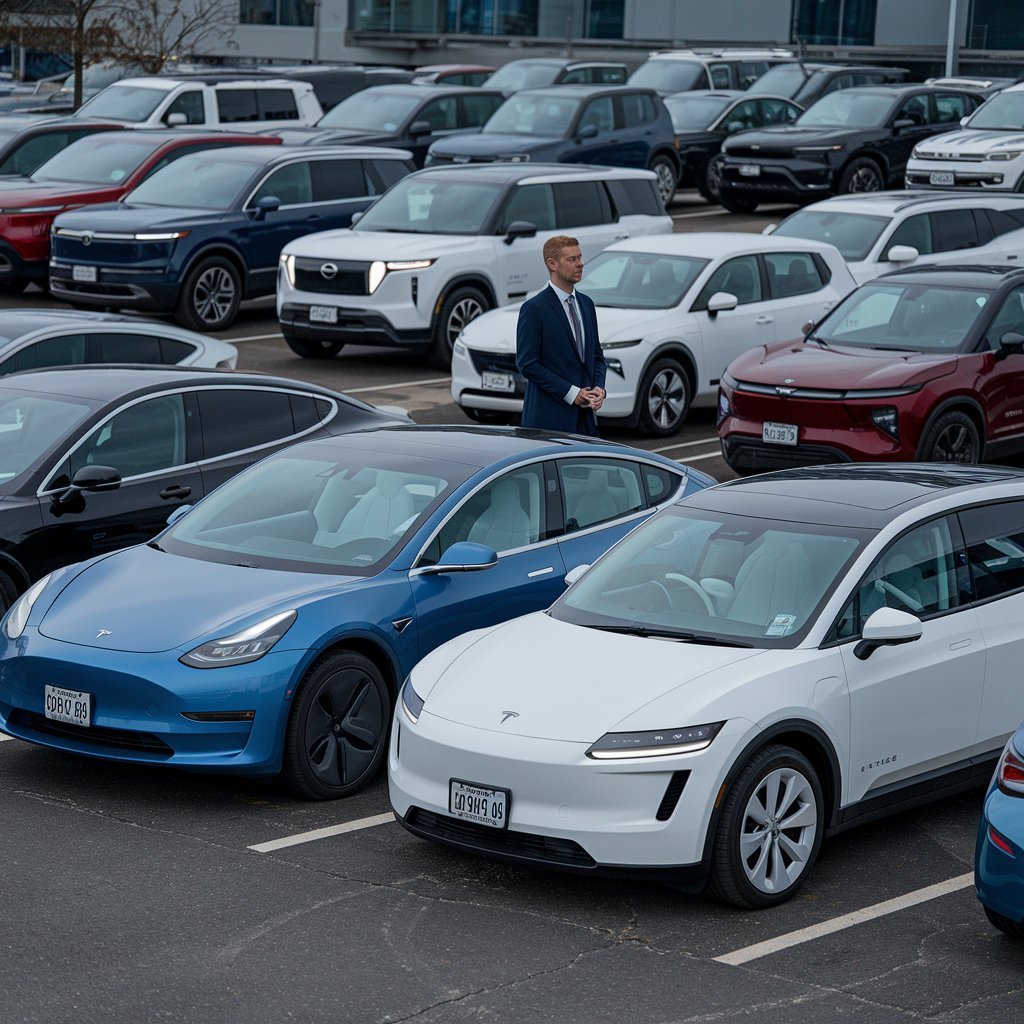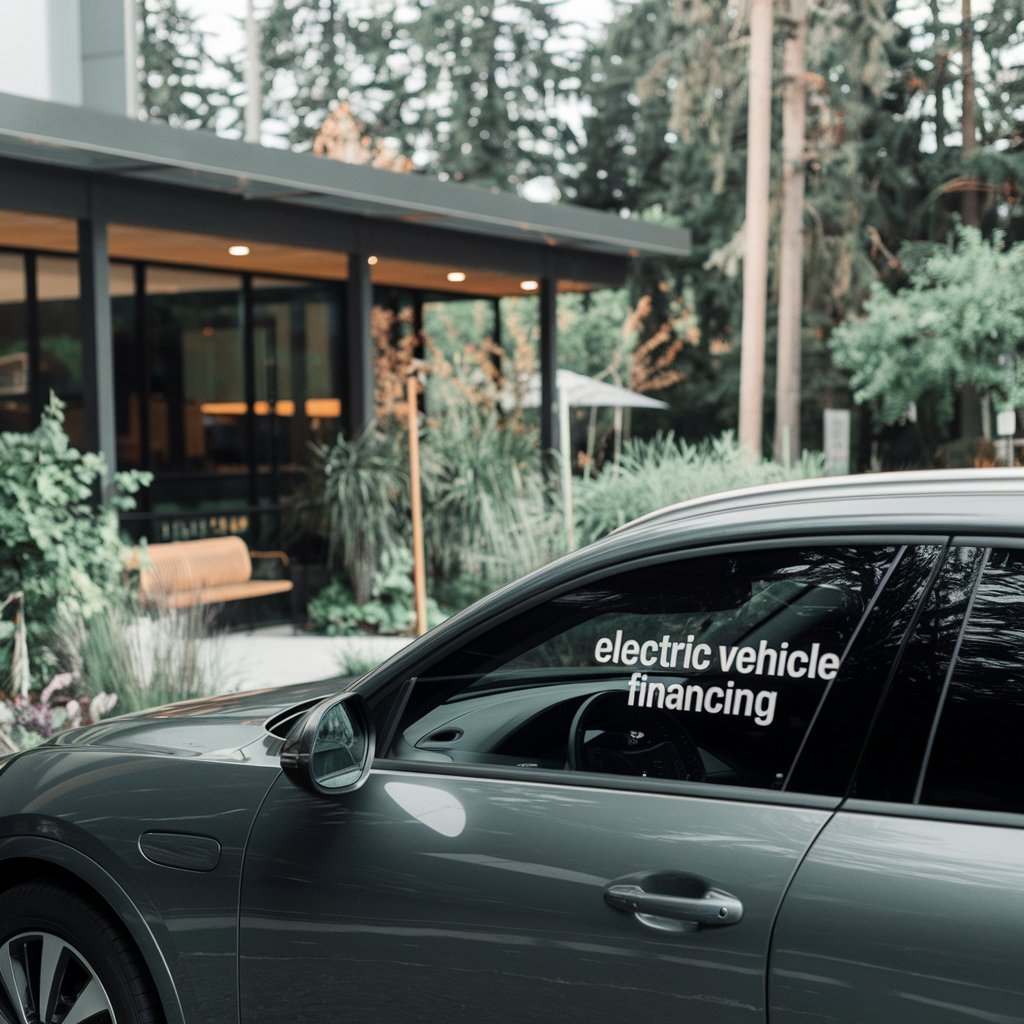Introduction
Electric vehicles (EVs) are becoming super popular because they are good for the planet and can save you money on gas. But, like any other car, you still need to figure out how to pay for them. That’s where electric vehicle financing comes in!
In this article, we’ll explain everything about financing an electric car. We’ll keep it simple and fun, so you can understand how it works even if you’re new to the topic. We’ll also answer questions like, “How do car loans work for EVs?” and “What are the best options to pay for an electric car?” Let’s dive in and discover all the ways you can get your dream EV!
What Is Electric Vehicle Financing?
When you buy an electric vehicle, you might not have enough money to pay for it all at once. That’s okay! Financing helps you get the car now and pay for it over time. You can either get a loan from the bank or a car dealership. You pay the loan back little by little each month, which is called a “monthly payment.”
But you also have to pay interest on top of that, which is a bit like a fee for borrowing money. You want the interest to be as low as possible so you don’t end up paying more than the car’s price!
Why Electric Vehicles?
Why are so many people excited about electric vehicles? Let’s look at some cool reasons:
- Environmentally Friendly: EVs produce no harmful gases, which helps the environment.
- Cost Savings: Electricity is cheaper than gasoline, and maintenance costs are lower.
- Government Incentives: Many places offer special deals, like tax credits, for buying EVs.
Now that you know why EVs are awesome, let’s see how you can pay for one with financing!
How to Finance an Electric Vehicle

Step 1: Know Your Budget
Before buying any car, especially an electric one, it’s important to figure out how much you can afford. This will help you avoid getting a car that’s too expensive. Use an EV finance calculator to see how much the monthly payments might be.
Step 2: Explore Financing Options
There are different ways to finance your EV, and it’s important to choose the best one for you.
Bank Loans
One way to finance an electric car is through a bank. You borrow money from the bank, and then you pay them back with interest. The interest rate depends on how good your credit score is. A better credit score means you’ll likely get a lower interest rate.
Dealership Financing
Another option is to get financing through the car dealership. Dealerships often have special deals on electric cars, which can make it easier to get a loan. But be careful; some deals might have hidden fees!
Leasing
Leasing is like borrowing a car. You don’t own the car, but you get to drive it for a few years and make monthly payments. At the end of the lease, you can give the car back or sometimes even buy it.
Key Features of Electric Vehicle Financing (In Table Form)
| Feature | Description |
|---|---|
| Interest Rates | The percentage of the loan you pay extra. Look for lower rates to save money. |
| Down Payment | An upfront payment you make to lower the total loan. |
| Loan Term | The length of time you have to repay the loan, usually 3-5 years. |
| Monthly Payments | The amount you pay every month toward the loan. |
| EV Incentives | Discounts or special offers from the government or dealerships when you buy an EV. |
| Total Loan Amount | The total amount of money borrowed to buy the car. |
| Zero-Down Loans | Some lenders offer loans with no down payment, but this often comes with higher interest rates. |
| Balloon Payments | A large one-time payment at the end of the loan term, sometimes required for lower monthly payments during the term. |
Best Financing Options for Electric Vehicles

Bank Loans vs. Dealership Financing
Banks usually offer better interest rates, but dealership financing can be more convenient. Sometimes dealerships have special promotions, especially for electric cars, which could make it cheaper. It’s always smart to compare both options.
Leasing Electric Vehicles: Is It a Good Idea?
Leasing can be a great way to drive an electric vehicle without committing to owning it forever. Leasing often means lower monthly payments compared to buying, but you won’t own the car at the end unless you decide to buy it.
Government Incentives for EV Financing
Did you know that buying an electric vehicle can actually get you money back? The government offers tax credits and rebates for electric car buyers. These incentives help make EVs more affordable by reducing the total cost of the car. Sometimes, you can save up to $7,500 or more!
Check with your local government to see what kinds of deals are available when you buy an electric car. This can be a big help in reducing your overall financing needs.
Important Things to Consider When Financing an EV

- Your Credit Score: A higher score will help you get a better interest rate, which saves you money.
- Down Payment: The more you pay upfront, the smaller your loan will be.
- Loan Term: Shorter loans mean higher monthly payments but less interest overall.
- Interest Rates: Even a small difference in interest rates can save you a lot of money.
- Maintenance Costs: EVs usually have lower maintenance costs than gas cars, but it’s still good to budget for unexpected repairs.
FAQs About Electric Vehicle Financing
1. What is the best way to finance an electric vehicle?
The best way depends on your personal situation. If you have a good credit score, getting a bank loan might be your best bet since they often have lower interest rates. However, dealership financing can offer convenience and special promotions.
2. Are there any incentives for financing electric vehicles?
Yes, many governments offer tax incentives, rebates, and even grants to help make EVs more affordable. These incentives can reduce your total loan amount, making financing easier.
3. Is leasing an electric vehicle cheaper than buying?
Leasing often has lower monthly payments, but you don’t own the car at the end of the lease unless you choose to buy it. If you like driving the latest models and don’t mind switching cars every few years, leasing can be a good option.
4. What credit score do I need to finance an electric vehicle?
A good credit score (usually 700 or higher) will help you secure lower interest rates on your loan. If your credit score is lower, you may still be able to finance an EV, but you might face higher interest rates.
5. Can I finance a used electric vehicle?
Yes, many banks and dealerships offer financing options for used electric vehicles. The process is similar to financing a new car, but the loan terms might be different.
Conclusion
Financing an electric vehicle doesn’t have to be complicated. By understanding your budget, exploring your options, and taking advantage of incentives, you can drive home in an EV sooner than you think! Whether you choose to get a bank loan, dealership financing, or even lease your car, you’re making a great decision for both your wallet and the planet.
In this guide, we’ve covered everything from basic financing options to government incentives. Now that you’re equipped with all this information, you’re ready to make the best choice when financing your electric vehicle. Happy driving!

